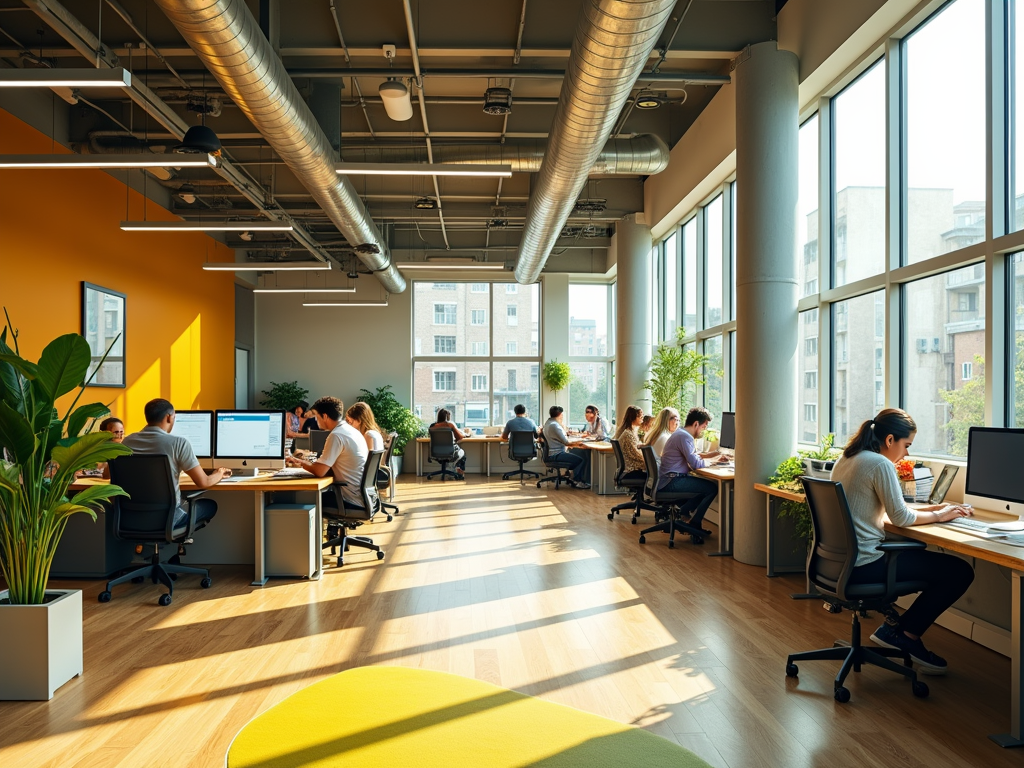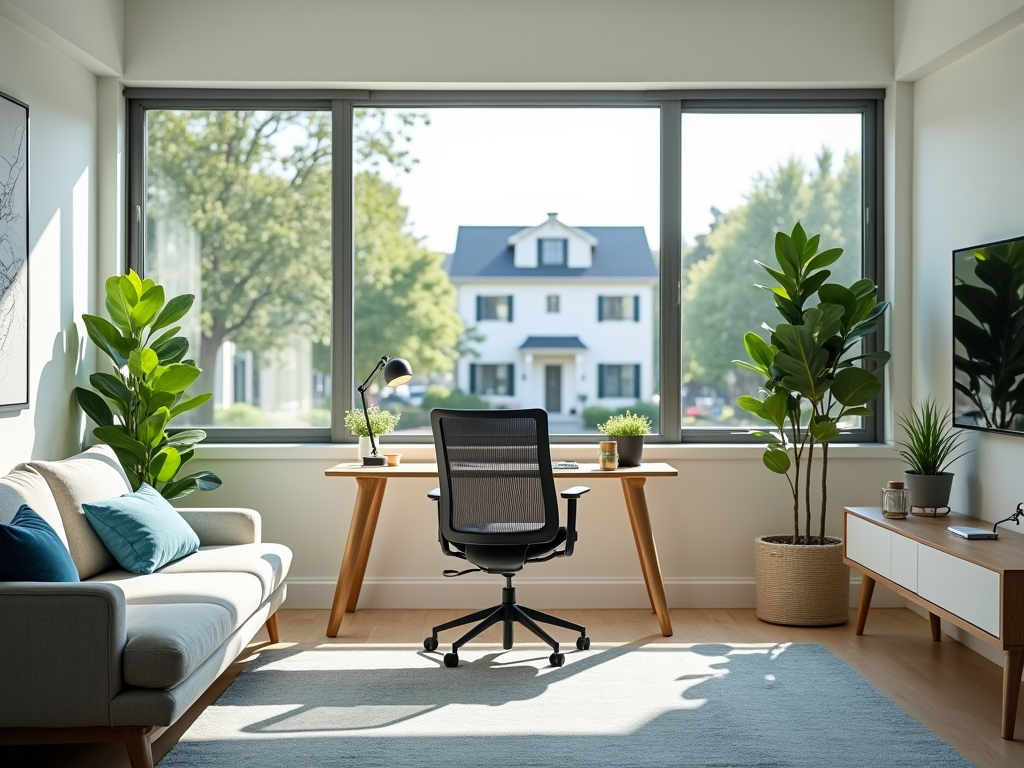Dubai’s property market is experiencing a significant transformation as remote working increasingly becomes the norm. The rise of flexible working arrangements has shifted the demands of homebuyers and investors, prompting changes in the types of properties that are in demand. With a growing number of professionals opting for remote work, the market is adapting with varied living options that cater to this new lifestyle. This article delves into how Dubai’s real estate sector is navigating these changes, what buyers are looking for, and the emerging trends that are reshaping the landscape.
The Impact of Remote Work on Property Demand

The surge in remote working has prompted potential property buyers to reassess their needs and preferences. Individuals are no longer confined to securing properties close to their workplace, leading to a broader interest in properties that offer more space, comfort, and appealing lifestyles. This fresh perspective on location has resulted in increased interest in suburban properties, essential amenities, and expansive home office spaces. The introduction of hybrid work models means that people are looking for homes that can serve as multifunctional spaces, catering to both personal and professional needs.
Some key factors influencing property demand include:
- Spacious Homes: Larger square footage is now preferred, enabling designated workspaces.
- Work-from-Home Amenities: Dedicated home offices or quiet zones are in high demand.
- Suburban Living: A shift toward suburban or less central areas for a better quality of life.
- Access to Leisure Facilities: Proximity to parks, gyms, and recreation areas is a priority for many buyers.
- Flexible Rental Options: An increase in demand for short-term rentals to accommodate remote workers.
The Shift Towards Suburban Areas

As remote work cultures solidify, urban centers like Dubai are witnessing a migration towards suburban living. Many professionals are choosing homes in quieter areas that provide a higher quality of life, often with larger properties at more affordable prices compared to central Dubai. This shift has led to a transformation in the peripheral real estate markets, driving demand for villas and townhouses which offer gardens and additional communal amenities. Developers have begun to capitalize on this trend by creating family-oriented communities that offer enviable work-life balance, along with spaces designed for recreation and outdoor activities.
The emphasis on spacious living has catalyzed the revival of previously underappreciated neighborhoods, making them attractive options for both new residents and seasoned investors. As these areas gain popularity, property developers are beginning to invest in infrastructure and services to accommodate the growing demand, including schools, healthcare facilities, and recreational amenities. This substantial shift has potential long-term implications for urban planning and the property landscape in Dubai.
As the real estate market adjusts to the remote working phenomenon, several notable trends are beginning to emerge:
- Smart Homes: The rise of technology-integrated homes is on the rise, allowing remote workers to optimize their living and working environments.
- Co-Working Spaces: Developers are incorporating shared co-working facilities in residential developments, providing the convenience of a professional environment without commuting into the city.
- Community Living: A demand for gated communities or lifestyle developments that foster a sense of community among remote workers.
- Short-Term Rentals: The rise of platforms catering to professionals seeking temporary accommodations that allow flexibility in choosing their workspace.
- Sustainable Building Practices: An increasing emphasis on environmental sustainability in property development, making homes more appealing to eco-conscious buyers.
Challenges for the Property Market
Despite the positive shifts driven by remote work, Dubai’s property market faces certain challenges. The ongoing volatility in the global economy, inflation, and fluctuating oil prices can impact property values and confidence in investments. Moreover, the gradual return of employees to the office as companies reassess hybrid models might lead to an oversupply in suburban markets, creating challenges for sellers and investors. Additionally, maintaining competitiveness among developers to attract buyers necessitates innovation and adaptability.
Real estate professionals will need to navigate these challenges wisely to ensure sustainable growth in a rapidly evolving market. Fostering relationships with clients who desire personalized experiences and showcasing properties that embrace current lifestyle demands will be essential for success.
Conclusion
In summary, Dubai’s property market is dynamically responding to the rise of remote working by evolving to meet the needs and preferences of modern homebuyers. As more individuals seek spacious homes in suburban areas and prioritize features conducive to remote working, real estate developers and professionals must adapt to these demands. The trends of co-working spaces, smart homes, and community living are reshaping the market landscape, providing unique opportunities for innovation. While challenges exist, successful navigation of these changes will ultimately benefit both buyers and the overall health of the Dubai property market.
Frequently Asked Questions
1. How has remote work impacted property prices in Dubai?
The demand for larger homes with work-from-home amenities has increased, which may drive up prices in suburban areas while potentially stabilizing or reducing prices in the city center.
2. Are there specific areas in Dubai that are more popular among remote workers?
Yes, areas such as Dubai Marina, Arabian Ranches, and Jumeirah Village Circle have seen significant interest due to their spacious living options and community amenities.
3. What type of properties are currently in demand in Dubai?
There is a growing demand for family-oriented properties such as villas and townhouses, as well as apartments with dedicated home office spaces.
4. Will the trend of remote work continue to influence the Dubai real estate market?
It is likely that remote work will continue to influence the market as companies increasingly embrace flexible work models, prompting ongoing changes in buyer preferences.
5. How can investors benefit from the changes in Dubai’s property market?
Investors can take advantage of emerging trends by focusing on properties with work-from-home features, investing in suburban developments, and identifying areas with expected growth due to infrastructure developments.
